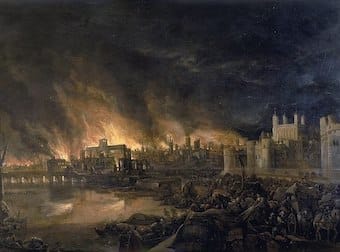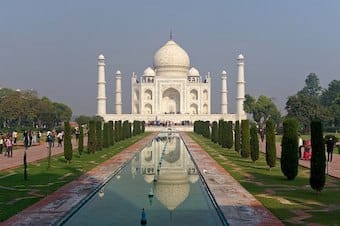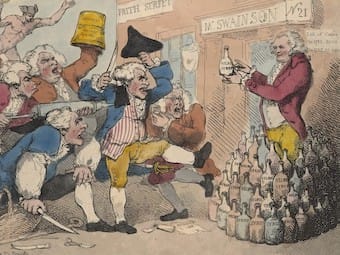493
On July 4th, 1776, a group of American colonists gathered in Philadelphia, Pennsylvania, to present delegates of the Thirteen Colonies with a historic document.
At a meeting in Philadelphia, Pennsylvania, on July 4th, 1776, Thomas Jefferson and four colleagues presented to the Second Continental Congress a document setting out why the Thirteen American Colonies held themselves to be “absolved from all allegiance to the British crown”. It marked the birth of the United States of America, grudgingly recognised by King George III in 1783.
Posted February 8 2021
494
Macaulay recalled an Italian fable about a fairy doomed every now and then to take the form of a snake, and drew from her a lesson about Liberty.
In an essay on John Milton contributed to the Edinburgh Review in 1825, Thomas Babington Macaulay recalled a fable by Italian poet Ludovico Ariosto (1474-1533) concerning the lovely fairy Manto, who every seventh day underwent transformation into a loathsome serpent. Macaulay drew from this a lesson about those statesmen who snatch Liberty away when she does not produce the results they want.
Posted February 6 2021
495
The day after the Great Fire of London finally burned itself out, John Evelyn walked through the charred streets.
In 1665, an epidemic of plague claimed some 70,000 lives in London alone. Then on September 2nd, 1666, fire broke out in Pudding Lane, and raged for five days. Casualties were low, but dozens of churches and civic buildings were destroyed, and over 13,000 houses went up in flames leaving some 80,000 Londoners homeless. On the 7th, John Evelyn went wandering among the ashes.
Posted February 4 2021
496
Sir Henry Craik had heard such glowing reports of Agra’s Taj Mahal, that he was afraid it might prove to be an anticlimax.
In 1907, Sir Henry Craik MP went on a tour of India. That December, he made his way south from New Delhi to Agra, where he marvelled at the sixteenth-century fort and the Pearl Mosque of Shah Jahan (r. 1628-58) before following the River Yamuna for a mile or so towards Shah Jahan’s legendary monument to his favourite wife, Mumtaz Mahal. Would it be all that report had made it?
Posted February 3 2021
497
Politicians who demand that everyone in the country unite behind their vision of society are standing in the way of real progress.
In the 1680s, many feared that after Charles II died his brother James would take England and Scotland into a European league of Roman Catholic kingdoms, led by Louis XIV of France. Algernon Sidney could not see how countries and peoples so diverse could possibly require the same laws, or how anyone would think such hidebound uniformity could lead to progress.
Posted February 2 2021
498
Edward III enticed over-regulated Dutch textile workers across the Channel with the promise of English beef and English beauties.
In the days of Edward III (1327-1377), English wool was the finest in Europe; but as we knew no more what to do with our wool (wrote Thomas Fuller) than the sheep that wear it, we exported it raw to the Continent and imported the finished cloth at a high price. Lesser men might have imposed taxes, subsidies or price controls to balance the economy, but Edward had a much better idea: some healthy competition.
Posted January 30 2021





